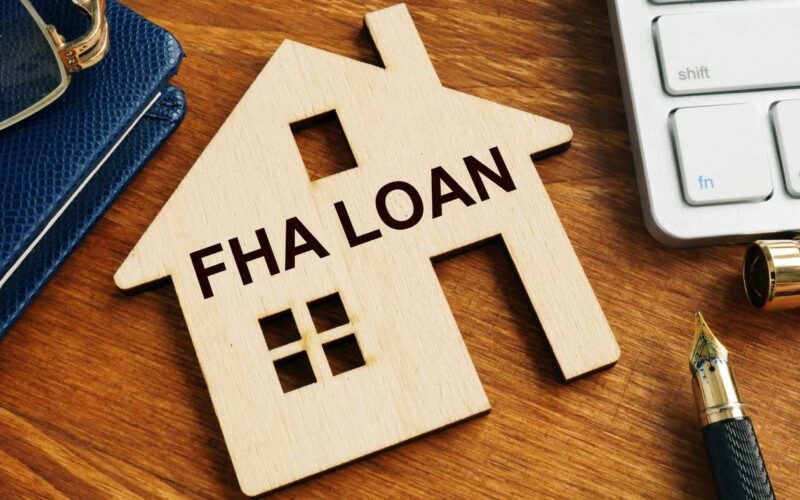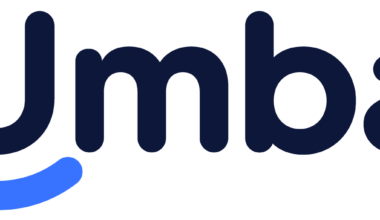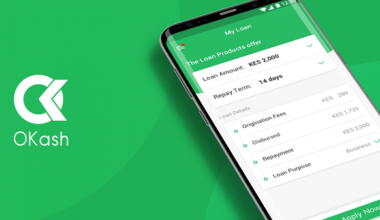FHA loans are an attractive option for many people looking to purchase a home. But what exactly is an FHA loan, and how does it differ from other types of mortgages?

An FHA loan is a mortgage that is insured by the Federal Housing Administration (FHA). This means that if the borrower defaults on the loan, the FHA will pay the lender a portion of the outstanding balance. Because the loan is backed by the government, lenders are more willing to offer favorable terms and lower interest rates to borrowers who might not otherwise qualify for a conventional mortgage.
FHA loans are particularly popular among first-time homebuyers, as they often have lower credit scores and less money saved for a down payment. They also have more lenient qualification criteria, making it easier for borrowers to get approved. However, FHA loans do have some drawbacks, including higher upfront costs and ongoing mortgage insurance payments.
Understanding FHA Loans
FHA loans are a type of mortgage that is insured by the Federal Housing Administration (FHA). This means that if the borrower defaults on the loan, the FHA will pay the lender. FHA loans are popular among first-time homebuyers because they have lower down payment requirements and more lenient credit score requirements than traditional mortgages.
Basics of FHA Loans
FHA loans are designed to help people who might not qualify for a traditional mortgage. They have lower down payment requirements, which can be as low as 3.5% of the purchase price. This makes it easier for people to buy a home, especially if they don’t have a lot of money saved up for a down payment.
FHA loans also have more lenient credit score requirements than traditional mortgages. While most traditional mortgages require a credit score of at least 620, FHA loans can be approved with a credit score as low as 500. However, borrowers with a credit score between 500 and 579 will need to put down at least 10% of the purchase price.
FHA Loan Requirements
To qualify for an FHA loan, borrowers must meet certain requirements. In addition to having a credit score of at least 500 (or 580 for a 3.5% down payment), borrowers must also have a debt-to-income ratio of no more than 43%. This means that their total monthly debt payments (including the mortgage) cannot exceed 43% of their gross monthly income.
Borrowers must also pay mortgage insurance premiums (MIP) on their FHA loans. This insurance protects the lender in case the borrower defaults on the loan. The MIP is typically included in the monthly mortgage payment and can range from 0.45% to 1.05% of the loan amount.
Types of FHA Loans
There are several types of FHA loans, including:
- FHA 203(b) loan: This is the most common type of FHA loan and is used to purchase or refinance a primary residence. The loan can be used to finance up to 96.5% of the purchase price.
- FHA 203(k) loan: This loan is used to purchase or refinance a home that needs repairs or renovations. The loan amount is based on the projected value of the home after the renovations are complete.
- FHA Title 1 loan: This loan is used to finance home improvements and repairs. The loan can be used for projects such as replacing a roof, installing new windows, or upgrading a heating system.
FHA loans also have limits on how much you can borrow, which are known as FHA loan limits. These limits vary depending on where you live and the type of property you are buying.
Eligibility and Application Process
Qualifying for an FHA Loan
To qualify for an FHA loan, an applicant must meet certain eligibility requirements. These requirements include a minimum credit score of 580 and a debt-to-income ratio of 43% or less. However, borrowers with credit scores between 500 and 579 may still be eligible for an FHA loan with a higher down payment.
In addition to credit score and debt-to-income ratio, an applicant must also provide proof of income. This can be done by submitting tax returns, pay stubs, and bank statements. Social security numbers are also required for all applicants.
The Application Steps
The application process for an FHA loan involves several steps. First, an applicant must find an FHA-approved lender. These lenders are approved by the Department of Housing and Urban Development (HUD) and are authorized to issue FHA loans.
Once an FHA lender has been found, the applicant must complete an application and provide all necessary documentation. This documentation includes tax returns, pay stubs, bank statements, and other financial information. The lender will then review the application and determine if the applicant meets the eligibility requirements for an FHA loan.
If the applicant is approved for an FHA loan, the next step is to complete the loan closing process. This process involves signing the loan documents and paying any closing costs. Once the loan has been closed, the borrower can move into their new home.
Overall, the eligibility and application process for an FHA loan is straightforward and can be completed with the help of an experienced FHA lender.
Financial Considerations
When considering an FHA loan, it is essential to take into account the various costs and fees associated with the loan. This section will discuss the financial considerations that borrowers should keep in mind.
Costs and Fees
FHA loans come with several costs and fees that borrowers must pay. These costs include closing costs, mortgage insurance premiums (MIP), and upfront MIP. Closing costs are fees paid to the lender and third parties that are involved in the loan process. These fees can vary depending on the lender and the location of the property.
Mortgage insurance premiums are required for all FHA loans. There are two types of MIP: upfront MIP and annual MIP. Upfront MIP is a one-time fee paid at closing, while annual MIP is paid monthly for the life of the loan. The amount of MIP paid depends on the loan term, loan amount, and the loan-to-value ratio.
Interest Rates and Mortgage Insurance
Interest rates for FHA loans are typically lower than conventional loans. However, borrowers must pay mortgage insurance premiums (MIP) for the life of the loan. The amount of MIP paid depends on the loan term, loan amount, and the loan-to-value ratio.
Borrowers can choose to pay an annual MIP or an upfront MIP. The annual MIP is paid monthly for the life of the loan, while the upfront MIP is paid at closing. The amount of MIP paid depends on the loan term, loan amount, and the loan-to-value ratio.
Private mortgage insurance (PMI) is similar to MIP but is required for conventional loans. PMI is typically required when the borrower’s down payment is less than 20% of the home’s value. However, with an FHA loan, borrowers must pay MIP regardless of their down payment amount.
In conclusion, borrowers should carefully consider the costs and fees associated with an FHA loan before applying. While FHA loans offer lower interest rates, borrowers must pay mortgage insurance premiums for the life of the loan.
Comparing FHA and Conventional Loans
When it comes to buying a home, borrowers have two main options: FHA loans and conventional loans. Both types of loans have their advantages and drawbacks, and the choice between them will depend on the borrower’s financial situation and goals.
Advantages of FHA Loans
One of the biggest advantages of FHA loans is that they require a lower down payment than conventional loans. According to NerdWallet, FHA loans require a minimum down payment of 3.5%, while conventional loans typically require a down payment of at least 5%. This can make FHA loans a more accessible option for borrowers who don’t have a lot of cash on hand.
Another advantage of FHA loans is that they are easier to qualify for than conventional loans. FHA loans have more lenient credit score requirements than conventional loans, and borrowers can have a higher debt-to-income ratio and still be approved for a loan. As Chase notes, “It’s often easier to qualify for an FHA loan than for a conventional loan.”
When to Choose a Conventional Loan
While FHA loans have their advantages, they may not be the best option for every borrower. One drawback of FHA loans is that they require borrowers to pay mortgage insurance premiums (MIP) for the life of the loan. According to Rocket Mortgage, “FHA loans require both an upfront MIP and annual MIP, and the annual MIP lasts for the life of the loan.” This can add up to a significant amount of money over time.
In contrast, conventional loans do not require mortgage insurance if the borrower makes a down payment of at least 20%. This can save borrowers a lot of money over the life of the loan. Additionally, conventional loans may offer lower interest rates than FHA loans, especially for borrowers with good credit.
Ultimately, the choice between an FHA loan and a conventional loan will depend on the borrower’s financial situation and goals. Borrowers who have a small down payment or a lower credit score may find that an FHA loan is the best option for them. However, borrowers who have a larger down payment and good credit may find that a conventional loan is a better choice.
Special FHA Loan Programs
FHA loans offer several unique programs to help different types of borrowers achieve their homeownership goals. Some of these programs include:
FHA Loan Variants for Different Needs
Energy Efficient FHA Loan
The Energy Efficient FHA Loan is designed to help homeowners make energy-efficient improvements to their homes. This program allows borrowers to finance the cost of energy-efficient upgrades into their FHA-insured loan. The upgrades can include installing new windows, adding insulation, upgrading HVAC systems, and more. This program can be a great option for those who want to reduce their energy bills and improve the comfort of their homes.
First-Time Homebuyers
FHA loans are a popular option for first-time homebuyers because they require a lower down payment and have more lenient credit score requirements than conventional loans. Additionally, the FHA offers several programs specifically for first-time homebuyers, including the Home Equity Conversion Mortgage (HECM) and the Section 245(a) Loan. These programs can help first-time homebuyers overcome some of the financial barriers to homeownership.
FHA Streamline Refinance
The FHA Streamline Refinance program is designed to help borrowers refinance their existing FHA-insured loan quickly and easily. This program does not require a new appraisal, income verification, or credit check. Instead, borrowers can refinance their loan with minimal documentation and paperwork. This program can be a great option for borrowers who want to take advantage of lower interest rates or reduce their monthly mortgage payment.
In conclusion, FHA loans offer several unique programs to help different types of borrowers achieve their homeownership goals. Whether you are a first-time homebuyer, want to make energy-efficient improvements to your home, or want to refinance your existing FHA-insured loan, there is likely an FHA program that can help you achieve your goals.
Frequently Asked Questions
What are the eligibility requirements for an FHA loan?
To be eligible for an FHA loan, borrowers must meet certain requirements. They must have a credit score of at least 580, have a steady employment history, and be able to provide proof of income. Additionally, borrowers must have a debt-to-income ratio of no more than 43%.
How do FHA loans differ from conventional loans?
FHA loans are backed by the Federal Housing Administration, while conventional loans are not. FHA loans typically have more lenient credit requirements and lower down payment requirements, making them a popular choice for first-time homebuyers. However, FHA loans also require borrowers to pay mortgage insurance premiums.
What are the benefits of choosing an FHA loan for first-time home buyers?
One of the biggest benefits of choosing an FHA loan as a first-time homebuyer is the lower down payment requirement. FHA loans only require a down payment of 3.5%, while conventional loans typically require a down payment of at least 5%. Additionally, FHA loans have more lenient credit requirements, making them easier to qualify for.
What is the process for applying for an FHA loan?
The first step in applying for an FHA loan is to find a lender that is approved by the Federal Housing Administration. The borrower will then need to complete an application and provide documentation such as proof of income, employment history, and credit score. The lender will then review the application and determine if the borrower is eligible for an FHA loan.
What are the income and credit guidelines for securing an FHA loan pre-approval?
To secure an FHA loan pre-approval, borrowers must have a credit score of at least 580 and a debt-to-income ratio of no more than 43%. Additionally, borrowers must be able to provide proof of income and employment history.
What are common reasons for an FHA loan application to be denied?
Common reasons for an FHA loan application to be denied include a low credit score, a high debt-to-income ratio, and insufficient income or employment history. Additionally, if the property being purchased does not meet FHA guidelines, the loan application may be denied.










